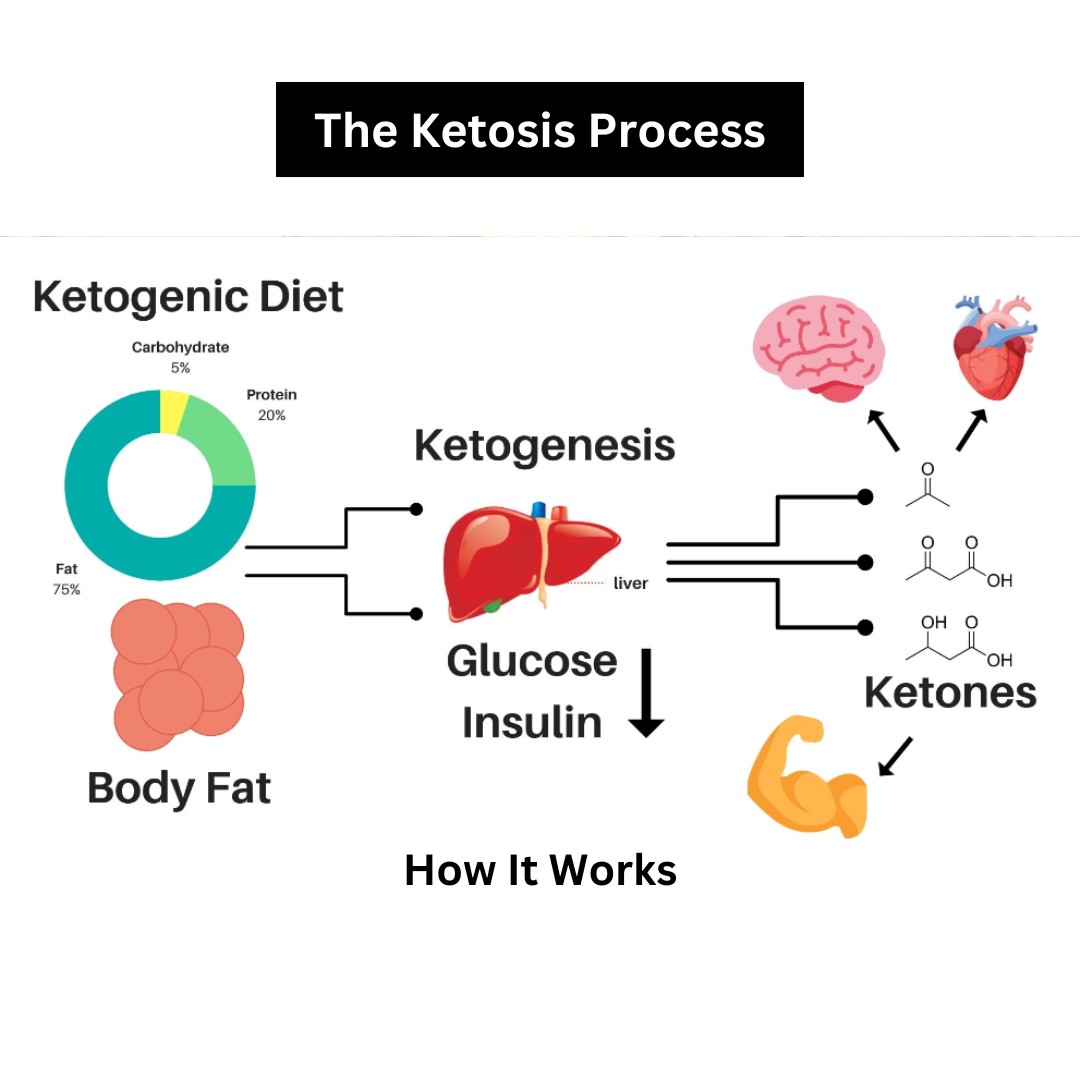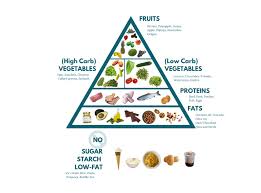Disclosure:
Thank you for reading this post, don't forget to subscribe!
Some of the links on this website are affiliate links. This means that if you click on the link and make a purchase, we may receive a small commission at no extra cost to you. Your support helps us keep the site running.Learn more on my Privacy Policy and Affiliate Disclosure page. Thank you for your support!
The ketogenic diet, often referred to simply as “keto,” has become one of the most popular and controversial diets in recent years. Promising everything from rapid weight loss to improved mental clarity, it’s no wonder that so many people are curious about whether this high-fat, low-carb lifestyle could be the answer to their health goals. But is the keto diet right for you? In this comprehensive guide, we’ll explore the ins and outs of the ketogenic diet, weigh its potential benefits and drawbacks, and help you decide if it’s a path worth pursuing.
Understanding the Ketogenic Diet
What Is Ketosis?
At the heart of the ketogenic diet is the concept of ketosis. Ketosis is a metabolic state in which your body, deprived of carbohydrates, begins to burn fat for fuel instead of glucose. Normally, the body converts carbs into glucose, which is then used for energy. However, when you drastically reduce your carb intake, your body’s glucose stores become depleted, and it turns to fat as an alternative energy source. This process produces molecules called ketones, which the body and brain can use for energy. Achieving ketosis typically requires consuming less than 50 grams of carbohydrates per day, although this can vary from person to person.
Further Reading: Diet Doctor – A trusted source for ketogenic diet information, meal plans, and recipes

Macronutrient Breakdown on Keto
The ketogenic diet is characterized by a specific macronutrient breakdown:
- Fats: 70-75% of total daily calories
- Proteins: 20-25% of total daily calories
- Carbohydrates: 5-10% of total daily calories
This high-fat, moderate-protein, and low-carb ratio is essential for maintaining ketosis. The focus is on consuming healthy fats such as avocados, nuts, seeds, and oils, while protein sources should be moderate and come from meat, fish, and eggs. Carbohydrate intake is limited to non-starchy vegetables, with grains, sugars, and most fruits being off-limits.
read more about: Debunking 6 Common Diet & Weight Loss Myths.
History and Origins of the Ketogenic Diet
The ketogenic diet is not a modern invention; it has roots that date back to the early 20th century. Originally developed in the 1920s as a treatment for epilepsy, particularly in children, the diet was designed to mimic the effects of fasting, which had been shown to reduce the frequency of seizures. Over time, interest in keto waned with the advent of antiepileptic drugs, but the diet saw a resurgence in the 1990s. More recently, it has gained popularity for its potential benefits in weight loss, diabetes management, and neurological health.
Potential Benefits of the Keto Diet
Weight Loss and Fat Burning
One of the most touted benefits of the ketogenic diet is its potential for weight loss. By switching your body’s primary fuel source from glucose to fat, you may experience a significant reduction in body fat. The keto diet can also help suppress appetite due to the satiating effects of fats and proteins, making it easier to stick to a calorie deficit. Studies have shown that individuals on a ketogenic diet often lose weight more quickly than those on a traditional low-fat diet.
Blood Sugar Control and Insulin Sensitivity
For individuals with type 2 diabetes or insulin resistance, the ketogenic diet can be particularly beneficial. By drastically reducing carbohydrate intake, the diet helps stabilize blood sugar levels and improve insulin sensitivity. This can lead to better glycemic control and, in some cases, a reduction in the need for medication. Some studies suggest that keto may even help reverse type 2 diabetes in certain cases, although more research is needed.
Improved Mental Clarity and Focus
The brain is a highly energy-demanding organ, and ketones provide an efficient and stable energy source. Many people on the ketogenic diet report enhanced mental clarity and focus, often attributed to the steady supply of ketones and the reduction in blood sugar fluctuations. This cognitive boost can be particularly appealing to those looking to improve productivity and concentration.
learn more about: What Is the Keto Diet and Should You Try It?
Potential Neuroprotective Effects
Beyond weight loss and mental clarity, the ketogenic diet may offer neuroprotective benefits. Research is ongoing, but there is evidence to suggest that keto could help protect against neurodegenerative diseases such as Alzheimer’s and Parkinson’s. The diet’s potential to reduce oxidative stress and inflammation in the brain, combined with the stabilizing effects on blood sugar, could make it a promising approach for maintaining brain health.
read next:
Possible Drawbacks and Side Effects
The “Keto Flu” and How to Manage It
One of the most common challenges people face when starting the ketogenic diet is the “keto flu.” This term refers to a group of symptoms that can occur as your body adapts to burning fat for fuel. Symptoms may include headaches, fatigue, irritability, nausea, and difficulty sleeping. These symptoms are usually temporary, lasting from a few days to a week. Staying hydrated, replenishing electrolytes (sodium, potassium, magnesium), and gradually easing into the diet can help mitigate the effects of the keto flu.
Nutrient Deficiencies to Watch Out For
The restrictive nature of the ketogenic diet can lead to nutrient deficiencies if not carefully managed. With the elimination of many fruits, grains, and starchy vegetables, there is a risk of missing out on essential vitamins and minerals, particularly fiber, potassium, magnesium, and certain B vitamins. To minimize this risk, it’s important to include a variety of low-carb vegetables, nuts, seeds, and consider supplementation if necessary.
find out more about: Keto Diet for Beginners. WebMD
Impact on Athletic Performance
While the ketogenic diet can be beneficial for weight loss and metabolic health, it may not be ideal for all athletes. High-intensity exercise, which relies heavily on glucose for fuel, can be compromised on a low-carb diet. Some athletes report a decrease in performance during anaerobic activities like sprinting or weightlifting when on keto. However, endurance athletes may benefit from the diet as their bodies become more efficient at burning fat for fuel. The impact on athletic performance varies from person to person and depends on the type of sport or activity.
Long-Term Sustainability Concerns
Another potential drawback of the ketogenic diet is its long-term sustainability. The restrictive nature of the diet can make it challenging to adhere to over time, particularly in social situations or when traveling. Additionally, the long-term effects of remaining in ketosis for extended periods are not fully understood, and there are concerns about the impact on heart health due to the high intake of saturated fats. For these reasons, it’s important to consider whether the keto diet is a sustainable and healthy choice for your individual lifestyle and health goals.
Who Should Consider the Keto Diet?
Ideal Candidates for Keto
The ketogenic diet may be particularly well-suited for individuals looking to lose weight, manage type 2 diabetes, or improve metabolic health. Those who have tried other diets without success, or who find themselves struggling with sugar cravings and energy crashes, may also benefit from keto. Additionally, people with neurological conditions such as epilepsy or Alzheimer’s disease may find therapeutic value in the diet.
Medical Conditions That May Benefit
Aside from weight loss and diabetes management, the keto diet may offer benefits for a variety of medical conditions. These include polycystic ovary syndrome (PCOS), which is often associated with insulin resistance, and certain neurological disorders like epilepsy, where keto has been shown to reduce seizure frequency. However, it’s crucial to consult with a healthcare provider before starting keto, especially if you have a medical condition that requires close monitoring.
check out: A Week of Mediterranean Diet Meals: Simple and Flavorful Recipes for Better Health.
Who Should Avoid the Ketogenic Diet
While the ketogenic diet can be beneficial for some, it’s not suitable for everyone. Individuals with certain medical conditions, such as pancreatitis, liver disease, or disorders of fat metabolism, should avoid the diet. Pregnant or breastfeeding women, as well as those with a history of eating disorders, may also need to steer clear of keto. Additionally, anyone taking medication for diabetes or hypertension should only start keto under medical supervision to avoid potential complications.
Getting Started with Keto
Calculating Your Macros
Before diving into the ketogenic diet, it’s essential to determine your macronutrient needs—how much fat, protein, and carbohydrates you should be consuming each day. Various online calculators can help you determine your macros based on your age, gender, weight, activity level, and goals. Remember, the goal is to maintain a state of ketosis, so your carb intake should be kept very low, typically below 50 grams per day.
Keto-Friendly Foods to Embrace

To succeed on the ketogenic diet, focus on incorporating the following foods into your meals:
- Healthy Fats: Avocados, olive oil, coconut oil, butter, ghee, nuts, and seeds.
- Proteins: Grass-fed meats, fatty fish (like salmon and sardines), eggs, and poultry.
- Low-Carb Vegetables: Leafy greens, cauliflower, broccoli, zucchini, and bell peppers.
- Dairy: Full-fat cheeses, heavy cream, and unsweetened yogurt (in moderation).
- Beverages: Water, herbal teas, and black coffee.
Foods to Avoid on the Ketogenic Diet
Certain foods are strictly off-limits on the ketogenic diet due to their high carbohydrate content:
- Sugary Foods: Candy, cookies, cakes, and sugary drinks.
- Grains and Starches: Bread, pasta, rice, oats, and corn.
- High-Carb Fruits: Bananas, apples, grapes, and oranges.
- Legumes: Beans, lentils, and chickpeas.
- Processed Foods: Many processed and packaged foods contain hidden sugars and carbs.
Meal Planning Tips for Success
Planning and preparation are key to staying on track with the ketogenic diet. Here are some tips to help you succeed:
- Meal Prep: Set aside time each week to prepare keto-friendly meals and snacks in advance.
- Read Labels: Be vigilant about checking food labels for hidden carbs and sugars.
- Stay Hydrated: Drink plenty of water to stay hydrated and help with digestion.
- Track Your Progress: Use an app or journal to track your meals, ketone levels, and how you feel.

Monitoring Your Progress
Using Ketone Testing Methods
One of the most reliable ways to ensure you’re in ketosis is by testing your ketone levels. There are several methods available:
- Urine Strips: Simple and affordable, but less accurate over time.
- Breath Meters: Measure acetone levels in your breath, offering moderate accuracy.
- Blood Monitors: The most accurate method, similar to glucose testing, but more expensive.
Tracking Health Markers Beyond Weight
While weight loss is often a primary goal, it’s important to monitor other health markers to gauge the full impact of the ketogenic diet. Keep an eye on:
- Blood Sugar Levels: Particularly important for those with diabetes or insulin resistance.
- Cholesterol Levels: Monitor both HDL (good) and LDL (bad) cholesterol, as well as triglycerides.
- Energy Levels: Pay attention to how your energy fluctuates throughout the day.
- Mental Clarity: Note any improvements or declines in focus and cognitive function.
Adjusting Your Approach for Optimal Results
As with any diet, it’s important to listen to your body and make adjustments as needed. If you’re not seeing the desired results or are experiencing negative side effects, consider tweaking your macronutrient ratios, increasing your intake of low-carb vegetables, or adding more healthy fats. Remember, everyone’s body responds differently, so finding the right balance is key to success.
explore more:
Common Keto Mistakes to Avoid
Overlooking Hidden Carbs
Hidden carbs can sabotage your efforts to stay in ketosis. They often lurk in processed foods, sauces, dressings, and even certain vegetables. Always read labels carefully and be mindful of portion sizes to avoid accidentally consuming too many carbs.
Neglecting Electrolyte Balance
The ketogenic diet can lead to a loss of electrolytes, particularly sodium, potassium, and magnesium, due to the body’s decreased insulin levels. This can result in symptoms like headaches, muscle cramps, and fatigue. To maintain electrolyte balance, consider incorporating bone broth, leafy greens, avocados, and salt into your diet, or take an electrolyte supplement.
Failing to Plan for Social Situations
Social events can be challenging when following the ketogenic diet. It’s easy to slip up when surrounded by carb-heavy foods and drinks. To stay on track, plan ahead by bringing your own keto-friendly dishes, eating before you go out, or researching restaurant menus in advance. Don’t be afraid to ask for modifications to meals when dining out.
Keto Variations and Alternatives
Cyclical Ketogenic Diet
The cyclical ketogenic diet (CKD) is an approach where you cycle between periods of low-carb, ketogenic eating and higher-carb refeeds. This variation is popular among athletes and bodybuilders who need more carbs to fuel intense workouts. Typically, CKD involves following a standard keto diet for five to six days, followed by one to two days of higher carb intake to replenish glycogen stores.
Targeted Keto for Athletes
Targeted ketogenic diet (TKD) is similar to CKD but involves consuming carbs around your workout times, rather than cycling entire days. This approach provides the necessary energy for high-intensity exercise while maintaining ketosis the rest of the time. TKD is ideal for those who engage in regular, vigorous exercise and need an extra energy boost during workouts.
Low-Carb Alternatives to Full Keto
For those who find the ketogenic diet too restrictive, low-carb alternatives like the Atkins diet or a modified low-carb high-fat (LCHF) diet may be more sustainable. These diets still promote low carbohydrate intake but allow for slightly more flexibility, making them easier to maintain long-term while still offering many of the same benefits.
Expert Opinions and Scientific Research
Current Studies on Keto’s Effectiveness
The ketogenic diet has been the subject of numerous studies, particularly in relation to weight loss, diabetes management, and neurological conditions. Research has shown that keto can be highly effective for rapid weight loss, improved insulin sensitivity, and even seizure control in epilepsy. However, most studies focus on short to medium-term effects, with less known about the long-term impact of the diet.
What Nutritionists Say About the Diet
Nutritionists and dietitians are divided on the ketogenic diet. While many acknowledge its benefits for weight loss and blood sugar control, concerns remain about its sustainability, potential nutrient deficiencies, and impact on heart health. Experts often recommend a balanced, whole-foods approach to eating, emphasizing the importance of including a variety of nutrient-dense foods.
Books on the Ketogenic Diet: “The Complete Ketogenic Diet for Beginners: Your Essential Guide to Living the Keto Lifestyle” by Amy Ramos – A great starting point for those new to keto, offering meal plans and easy-to-follow recipes.
Gaps in Long-Term Research
One of the key criticisms of the ketogenic diet is the lack of long-term research. While short-term studies have shown promising results, there is limited data on the effects of remaining in ketosis for extended periods. Potential concerns include the impact on cardiovascular health, bone density, and kidney function. As with any diet, it’s important to consider the long-term implications and consult with a healthcare provider before making significant dietary changes.
Conclusion: Is Keto Right for You?
Weighing the Pros and Cons
The ketogenic diet offers a range of potential benefits, from weight loss and improved blood sugar control to enhanced mental clarity. However, it also comes with challenges, including the risk of nutrient deficiencies, the “keto flu,” and concerns about long-term sustainability. It’s important to weigh these pros and cons carefully when deciding if keto is right for you.
Importance of Personalized Approach
No single diet works for everyone, and the ketogenic diet is no exception. Your individual health goals, lifestyle, and medical history should all be considered when determining whether to try keto. What works for one person may not work for another, so it’s essential to take a personalized approach and be willing to adjust as needed.
Consulting with Healthcare Professionals
Before starting the ketogenic diet, it’s crucial to consult with a healthcare professional, especially if you have any pre-existing medical conditions or are taking medication. A doctor or registered dietitian can help you navigate the diet safely, monitor your progress, and make adjustments to ensure you’re getting the nutrients you need.
Further Reading: Diet Doctor – A trusted source for ketogenic diet information, meal plans, and recipes
FAQs About the Ketogenic Diet
Is the keto diet safe long-term?
The long-term safety of the ketogenic diet is still being studied. While it can be effective in the short term, concerns exist about potential nutrient deficiencies and the impact on heart health. Consulting with a healthcare provider is recommended for those considering long-term keto.
Can I build muscle on keto?
Yes, it is possible to build muscle on a ketogenic diet, especially if you consume adequate protein and engage in regular strength training. However, some individuals may find it challenging to achieve muscle gains due to the lower carbohydrate intake.
How quickly can I expect to see results?
Results vary depending on the individual, but many people begin to see weight loss and changes in energy levels within the first few weeks. Mental clarity and improved focus are often noticed within the first month.
Is keto effective for type 2 diabetes management?
The ketogenic diet can be highly effective for managing type 2 diabetes by improving insulin sensitivity and stabilizing blood sugar levels. However, it’s important to work with a healthcare provider to monitor blood sugar and adjust medications as needed.
Is keto effective for type 2 diabetes management?
The ketogenic diet can be highly effective for managing type 2 diabetes by improving insulin sensitivity and stabilizing blood sugar levels. However, it’s important to work with a healthcare provider to monitor blood sugar and adjust medications as needed.
Can I drink alcohol on the keto diet?
Yes, you can drink alcohol on the keto diet, but it’s important to choose low-carb options such as dry wines or spirits mixed with sugar-free mixers. Keep in mind that alcohol can slow down weight loss and affect ketosis, so moderation is key.
3. Apps for Keto Tracking: KetoDiet App: Offers meal plans, recipes, and a robust tracking system to help you stay on track with your keto goals.
more about:
HEALTH / WELLNESS / FITNESS / NUTRITION
SHARE THIS ARTICLE














